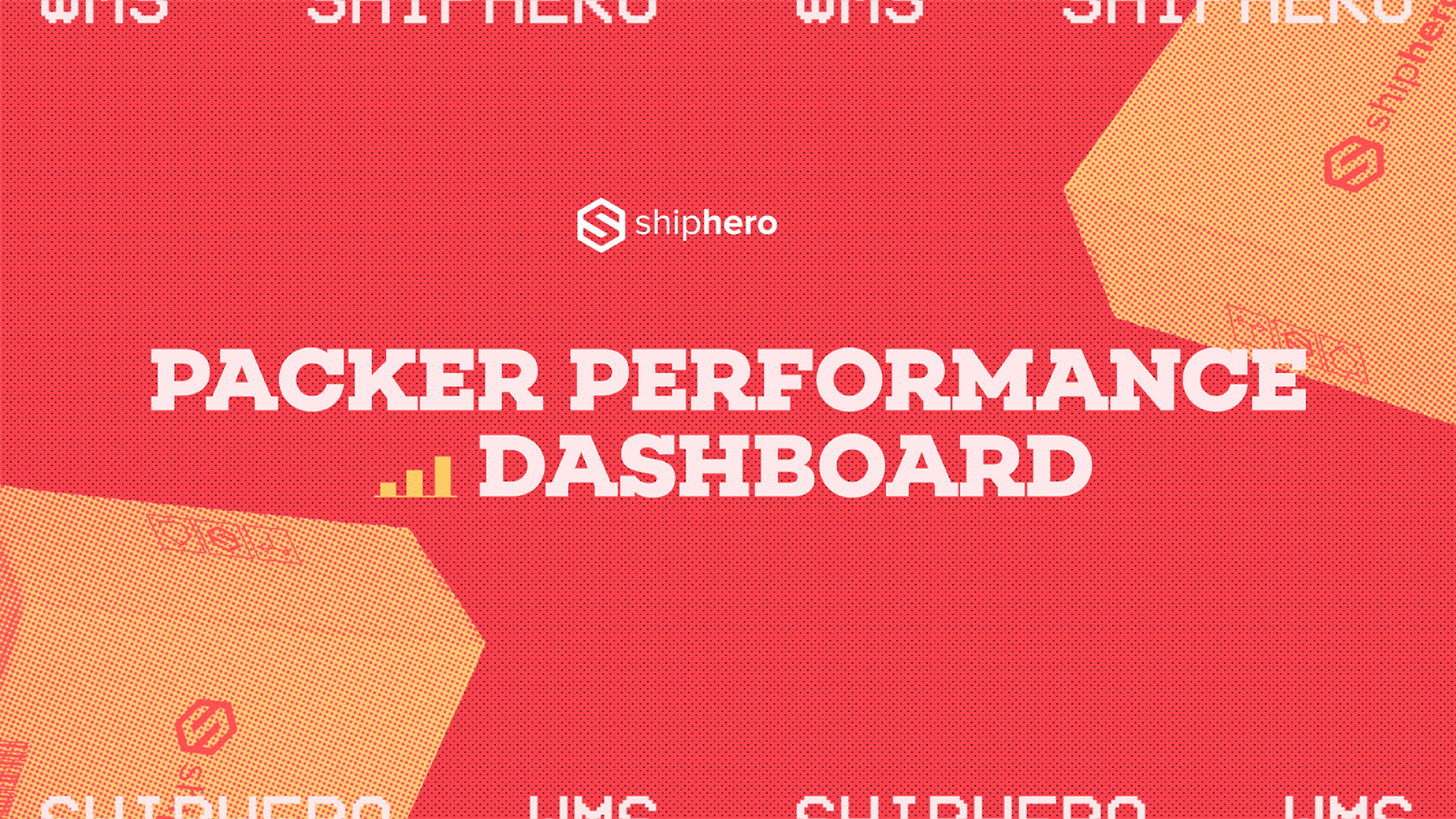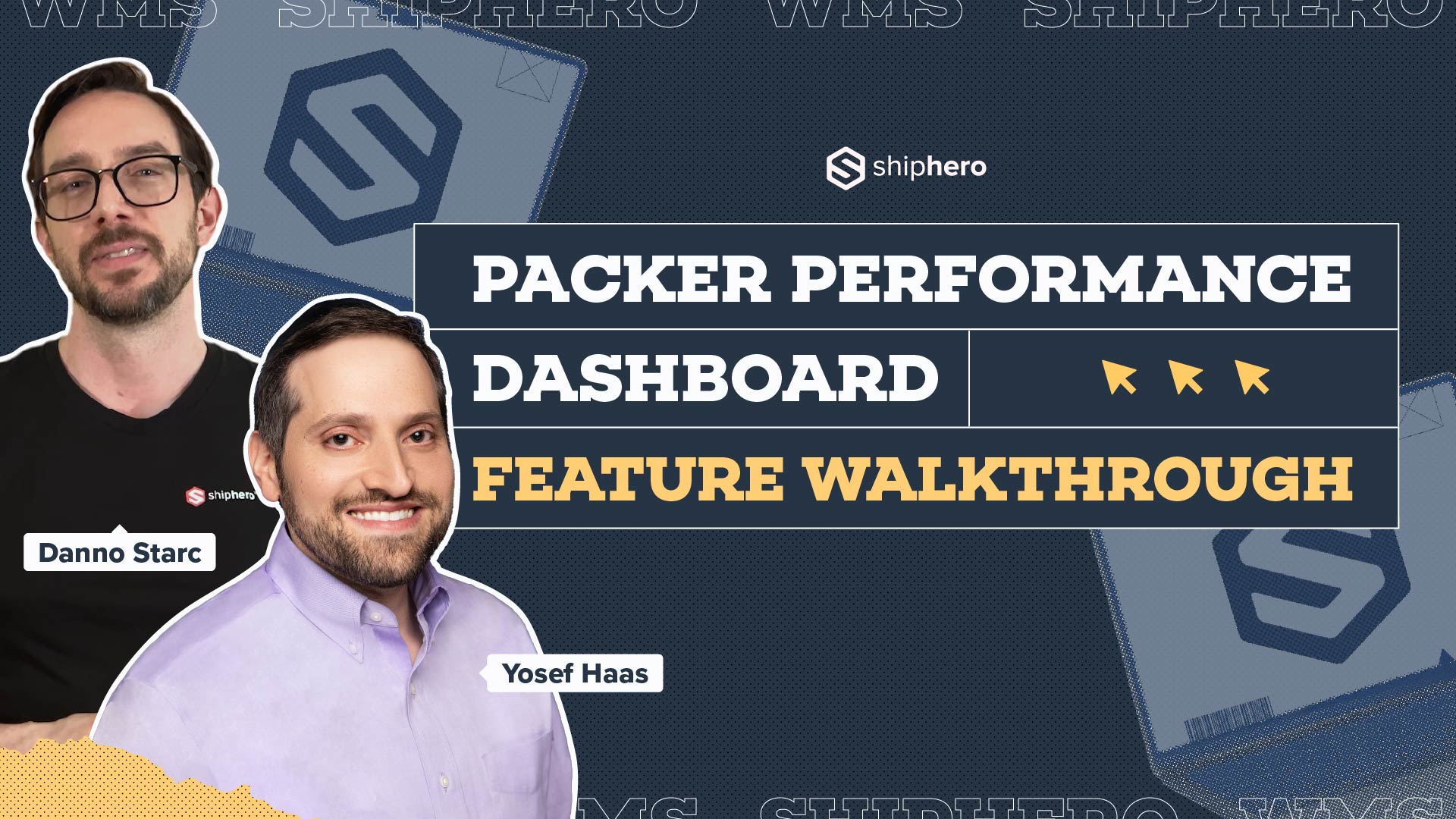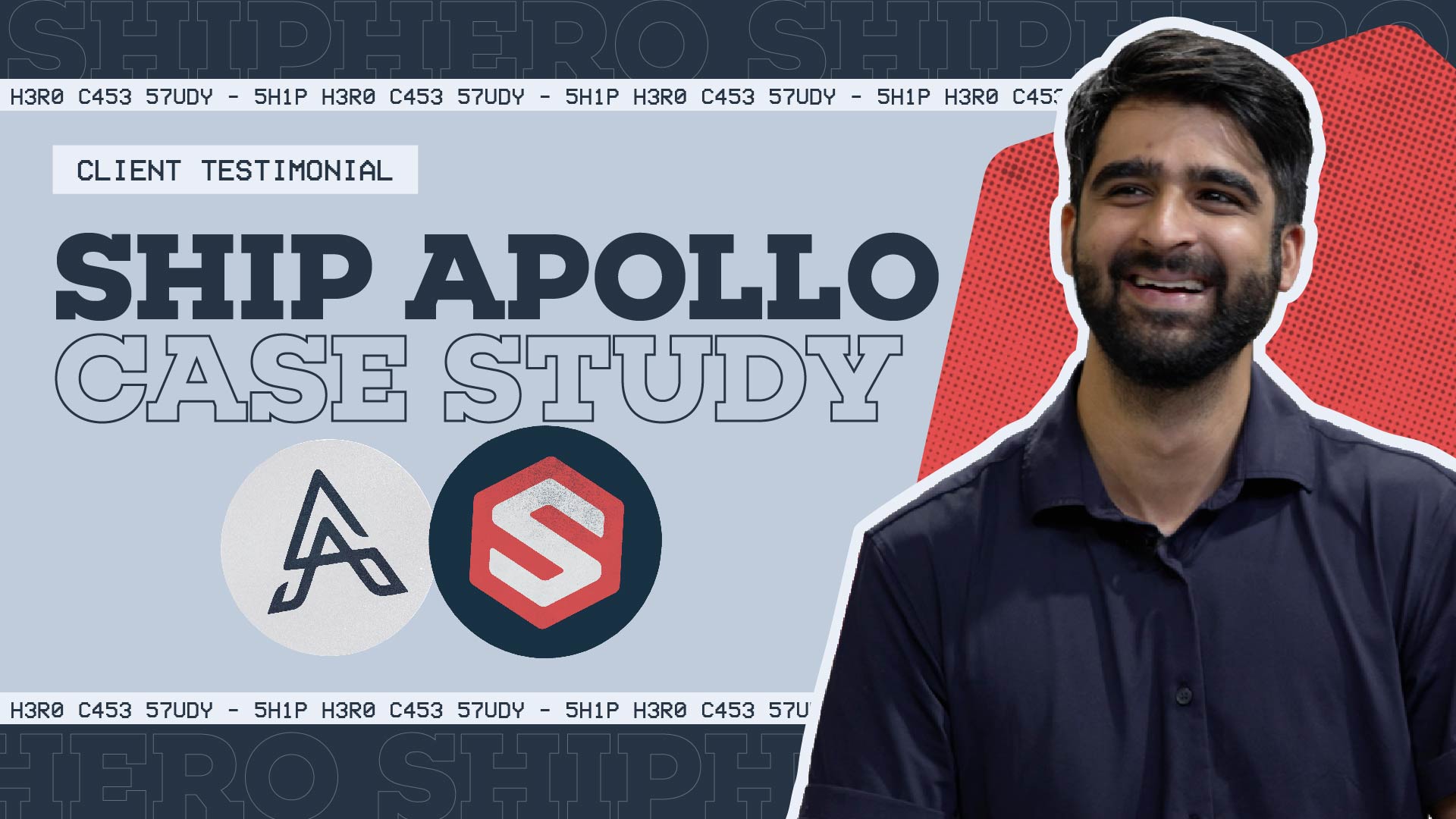
Have you ever wondered how Special Projects are handled?Well, you can learn all about the process and guidelines from Clara Tagliafico, our Head of Special Projects! Our experts provide end-to-end fulfillment solutions for special project needs - no matter how complex. From inventory availability to shipping instructions, our on-site and remote teams dedicate their time and energy to ensuring your special project requests are fulfilled accurately and on time.Join us now as we take you through the step-by-step procedures of processing orders, from reviews to tracking, packing, and managing inventory shortages.Discover the secrets of successful special project order fulfillment!
As a ShipHero fulfillment customer when you have special projects, special projects are wholesale, FBA, kitting and prep, the way we process it is first Clara's team takes the first review of the project. So Clara, why don't you explain what happens when we get a special project submitted by a customer? Well, the customers submit a ticket with the special project request, the special project type, and most of the times an order in place already, and with the instructions on what has to be done. So once our team gets the ticket, we log that to the warehouse, making sure that the order is already mapped and ready to be worked on, and we send them the instructions along with any type of labels that they need to add to the order and all the specifics that we have to make sure it gets done for the warehouse to work on and have it ready as soon as possible. So if Clara's team reviews and missing information, her team comes back to you with the missing requirements, and they're the gatekeeper of making sure nothing gets to the warehouse until the warehouse will have all the things they need. Once the warehouse works on it, let's just talk through briefly sort of what that process is. Let's use a wholesale order as an example. So what do you need from the customer to be submitted for us to process the wholesale order, and then what do we do in the warehouse to get that order out? We need as much information as possible as to how the order is going to ship, if it's going to be small parcel, if it has to be packed a certain way, if the customer is going to provide labels, if they are going to schedule freight or if we have to do it for them. So as much information as possible is the best. And once we have all that, we make sure that the order in place is correct. And if something's missing, we communicate with the customers to have that fixed if there's something they have to fix or if there's something on our end that we will need to adjust or change. And once we get all the information and the warehouse has all the information, we work on it and we send the final result. If the customer needs a specific box counts or pallet counts, weights and things like that, we let them know so they can complete the process on their side if they're going to provide labels and things like that. Right. So after we're done in the warehouse, Clara's team will reach out. If it's required booking freight with all the information you need to book the freight, then that data comes back and the warehouse dispatches it. Let's talk about the process in middle. So after the order gets sent to the warehouse, you have a really tight process to ensure that there's no missing information or missing product before they get started. So the process is the inventory team has a list of every item moving for the order. They go, they grab those items off the pallet racks usually, the overstock, wherever it is, they transfer it to a WO location is what we call it, which is a one-time use barcode or a license plate to track that item so that there's zero time where the product's moving and not tracked. Those WOs also have a specific color, so it's easy for us to track. Then those products are physically moved to sort of a special projects warehouse. Exactly. Which is like a designated area which only the special projects team works on. They transfer from the WO to the special projects location, right? And then at that point the special project teams starts their job. It's no longer the inventory team's job. It's a projects team where they pack and they follow the instructions. Exactly. And if there's any discrepancy or shortage where the inventory team can't move the full product, that's when the inventory team would reach out to you and say, "Okay, it's short. We don't have enough stuff. Something's damaged." You would reach out to that customer. I will let the customers know so they can make the proper adjustments. So any tips for our customers who are putting in special projects to make it so that their orders get out more quickly and with minimal back and forth? Yeah. Well first of all, I would check that all the inventory that the order is going to be asking for is actually available. And if the customer has their inventory spread across warehouses, they have to make sure that if an order is going to ship only from one warehouse, that the product is actually there and not just the total that we have within our network. And then we need to know how the order is going to ship. Because one thing is if the order is going to ship small parcel and we can just box it up and have it ready, or if it's going to ship on pallets where we need to add pallet labels or have a certain [inaudible 00:04:49] for the pallets or weight limits and things like that. Right. Yeah. So being compliant is always a lot of work. It's a challenge, expensive to get wrong, so we can only be compliant based on the information we get. And if we don't get the full information that back and forth means that shipment might wait an extra couple of days, which none of us want. Exactly. Thinking about peak season, what are you thinking about and what can a customer do to best prepare to make sure that their projects get done during peak? Well, the best thing is that they provide us with as much information as possible when submitting the special project request. So we don't have to go through all the back and forth with questions on how they're going to have it shipped or when it's going to be picked up and when it has to be ready for us. So I would say give us enough time in advance, like a reasonable timeframe to prepare the order, because it's not going to be feasible to ship a wholesale order that maybe it's like a significant amount of pallets overnight. So I would say give us time in advance and as much information as possible to have the project ready and we can have it done smoothly. And you should know that not only do we have great teams on the floor doing special projects in all our buildings, we also have an amazing remote team that Clara runs that has great continuity and knows what's going on across the warehouses to ensure that your special projects get done correctly and on time. Yes. Thank you. You're welcome.


.webp)
Meet the Packer Performance Dashboard, ShipHero’s latest feature that goes beyond simple pack rates.
📦 Tracks key packing events (Tote Scan, Item Scan, Print Label, Order Complete)
📈 Scores efficiency based on expected vs. actual pack time
⚡ Factors in order complexity & shipment type for real-world accuracy
Your warehouse just got smarter. Ready to optimize labor costs?
.svg)

.webp)
In this video, we explore ShipHero’s Packer Performance Dashboard—a powerful tool designed to provide unbiased, data-driven insights into your packing team’s efficiency. Unlike traditional productivity trackers that rely on averages, our dashboard evaluates order complexity, packing time, and individual packer performance to offer a comprehensive understanding of your warehouse operations.
Key Features Covered:
📦 Order Complexity Assessment: Learn how the dashboard differentiates between simple and complex orders, ensuring accurate performance metrics.
📦 Detailed Performance Metrics: Discover how to access real-time data on expected versus actual packing times, along with individual packer rankings.
📦 Data-Driven Decision Making: See how the tool enables fair evaluations, smarter hiring decisions, and effective team management based on factual data.
Join us for this in-depth walkthrough and see how ShipHero’s Packer Performance Dashboard can transform your warehouse efficiency.
.svg)

.webp)
Discover how Rohan Kumar, Founder of The Do More Company, revolutionized fulfillment for Zenergy Chewing Gum using ShipHero and Ship Apollo. From scaling operations across the U.S. and Canada to seamless multi-warehouse management, hear how ShipHero’s tools have been a game-changer!
.svg)